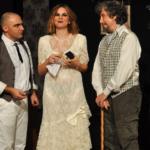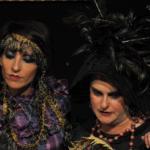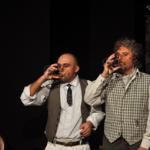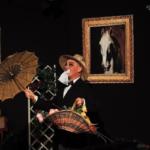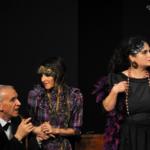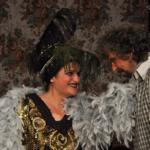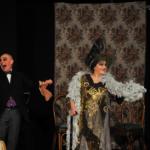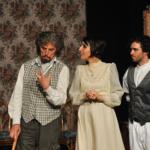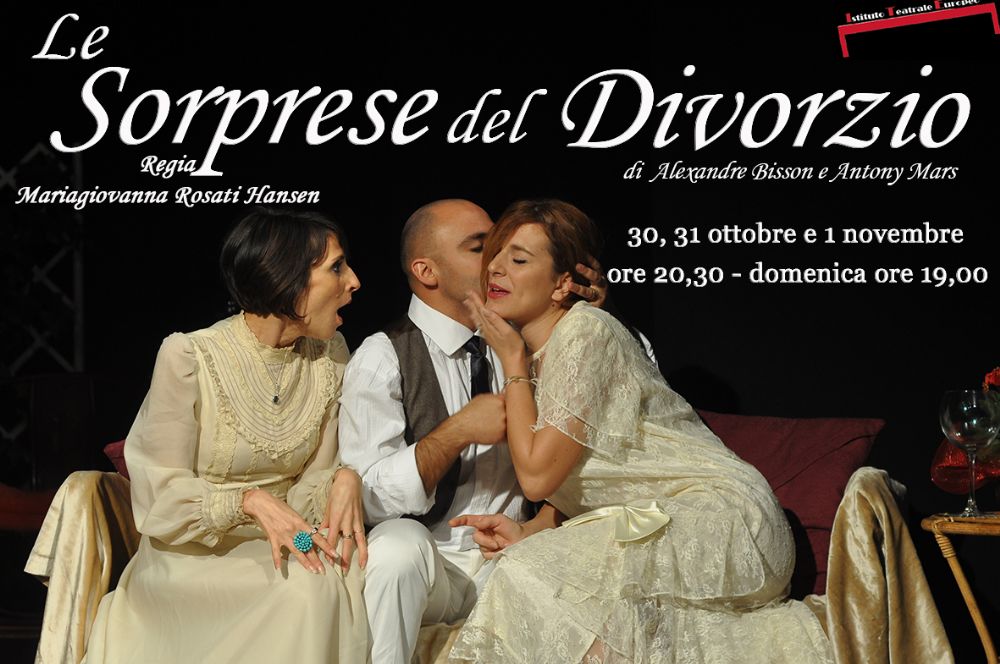 “The surprises of divorce” (Le sorprese del divorzio) is a comedy in two acts of 1888, co-written by the French Alexander Bisson and the English Anthony Mars. It fits fully into the tradition of the vaudeville, a kind of theatrical text that triggers mechanisms of comedy on misunderstandings and paradoxical situations In fact, this work inspired by the common rivalry created between son and mother-in-law to give birth to a daring series of hilarious misunderstandings and twists of events, characters and relationships .
“The surprises of divorce” (Le sorprese del divorzio) is a comedy in two acts of 1888, co-written by the French Alexander Bisson and the English Anthony Mars. It fits fully into the tradition of the vaudeville, a kind of theatrical text that triggers mechanisms of comedy on misunderstandings and paradoxical situations In fact, this work inspired by the common rivalry created between son and mother-in-law to give birth to a daring series of hilarious misunderstandings and twists of events, characters and relationships .
Henry Duval obsessed by his ubiquitous mother-in-law , Madame Bonivard, a former dancer known at the time of the Grand Theatre by uncle Corbullon comes to divorce from Diana, who is under the thumb of her mother . Two years later , Henry married Gabriella , daughter of Bourganeuf,, a kind hearted widower. Everything seems to be going well , until after a journey of care, Bourganeuf comes back rejuvenated and remarried none other than that … with Diana ! So poor Henry finds himself in the house ‘s his former wife, who has become his mother-in-law , but above all, he has to face againg the old Bonivard, his hated former mother-in-law . But luckily the return of Champeau , old friend and eternal love with Diana, will be enough to release Henry from his former mother-in-law , not without benefit … .
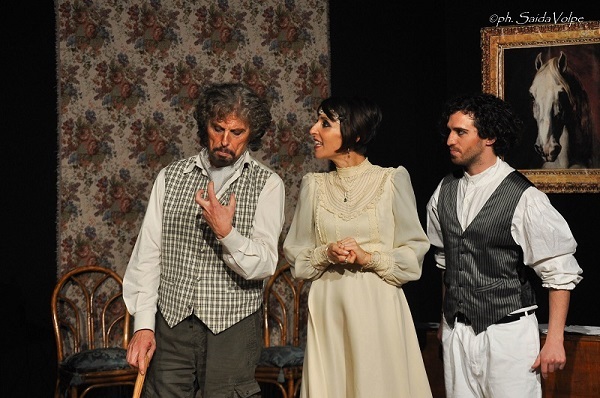 With a plot like that, the comic gags, word games and misunderstandings they are paradoxical imaginable. Especially if the pace and the comic vein of comedy very well known and represented many times ( in Italy it is even made a silent film before in 1912 and then sound in 1939 and directed by Guido Brignone ) it is subjected to a revision of the text and directorial choices that renew and make it even more enjoyable .
With a plot like that, the comic gags, word games and misunderstandings they are paradoxical imaginable. Especially if the pace and the comic vein of comedy very well known and represented many times ( in Italy it is even made a silent film before in 1912 and then sound in 1939 and directed by Guido Brignone ) it is subjected to a revision of the text and directorial choices that renew and make it even more enjoyable .
This is the case of the representation of this famous vaudeville stage at the Teatro Abarico from October 30 to November 1, produced by the European Theatre and directed by Maria Giovanna Rosati Hansen .
” I wanted to stage this classic vaudeville to make a challenge to myself : after having directed many dramas , I wanted to put on the scenes a comedy ” – says Lady Hansen
Lady Hansen has ” look younger ” this text , which has now more than a century , put it through revisions and cuts , in order to give it an even faster rate and tightened a character that doesn’t not insered in the original text: the dumb butler . Thanks to the talents and actors’ facial expressions of the actor Umberto Bianchi this new character proved to be a particularly brilliant directorial found , that has helped to make it even more hilarious situations proposed by the original text , marking them with original and hilarious gags .
The scenery and the costumes were attentively furnished, especially those of the female characters (Diana, Gabriella and Madame Bonivard ), were made in a way that also highlight the unique characteristics of their personalities . The director claimed to have supervised the construction by herself .
Maria Giovanna Rosati Hansen, as well as director is also Counselor Art Theatre (Theatre Arts Therapist). Actress and director of a lifetime was formed very young and had teachers such as Brook, Grotowskj, Marcel Marceau, Eugenio Barba and Susan Strasberg. In 1973 she founded the European Theatre Institute, the first structure of the Anglo-Saxon vocational training sector in Italy, which makes use of counseling and psychological techniques in support of the Art Theatre, providing one of of the most comprehensive european training in Italy, it is part of the artistic and social theater and therapeutic. She then developed a method which then teaches actors and directors, precisely the method Hansen, known in Europe and in the United States.
In this method, the art and psychology penetrate in order to make the craft of therapeutic fact synergies, that develop help the individual and the interpreter to experience pleasure and fun in performing and unleash their creativity by technical inhibitory constraints.
The show:
Directed by Mariagiovanna Rosati Hansen
Performers:
Umberto Bianchi, Arianna Arista, Dario Costa, Henry Pinna Riccardo Buttarini, Monica Grant, Deborah Perrotta, Stefano Ciriachi
WHERE :
Abārico Theatre – Via dei Sabelli 116 – Rome
WHEN:
From 30 October until November the First at 8 and an half P.M.
[codepeople-post-map]
Actually Vera Stufano is a teacher in Secondary School, but she has been actress, director and writer for theatre. Very fond of acting, she is also interested in reviewing dramatic works performed on Roman theatres, in order to let people know the most beautiful plays and the most amazing and amusing performers on stage in Rome.
Born on 15 June 1972 in Bari, classical high school graduated and afterwards college graduated in Licterature, later she has taken a master in Mass –Media Comunication on University of Florence “Cesare Alfieri” and she has attended to Screenwriting School of Mediaset. Since 1999 until 2005 she has worked as free-lance for some TV Drama Production Society as Lux Vide S.p.A and Rai Due: she has been story editor assistant and Press Office personnel.
On 2006 she makes a different choice of life: she decided to become a school teacher and left tv showbusiness for theatre. Today she teachs italian Licterature and History in Secondary School, but she is also involved in acting whitin a little amateur theater Company “I Ricercati” or acting by herself . She has been actress, director and drama writer and she has performed on a lot of Roman stages, among which “Teatro Agorà”, “Teatro dell’Orologio” and “Piccolo Eliseo”.

